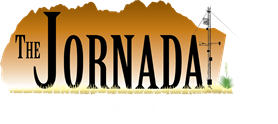| Abstract | Plant microbiomes include numerous seed associated microbes which are vertically transferred to progeny. These complex microbial communities have not been heavily reported in scientific literature, possibly because they are difficult to detect and monitor. Yet potential for seed borne microbes to influence host plant performance across generations suggests opportunity for exploiting microbes to enhance host plant adaptation across changing habitats. The chenopod species Atriplex canescens offers a valuable model system in which to correlate the distribution of endophtye microbiomes with plant adaptation to stressed habitats. Broadly distributed across arid and saline habitats, the species is known for its restoration potential, complex genetics, and diverse microbial associations. The species lends itself well to micropropagation, and numerous fungal and bacterial species have been observed in micropropagated lines initiated from disinfested seeds. Hence, these micropropagated lines provide useful systems through which interactions between seed borne microbes and the plant itself can be systematically examined to improve understanding of microbial contributions to plant fitness. The shift from investigating plants as single entities to observing plants as lichenous consortia of mutualistic symbionts promises to expose opportunities for utilizing microbes to maximize plant productivity relative to human agricultural, biofuel, or restoration needs. |


